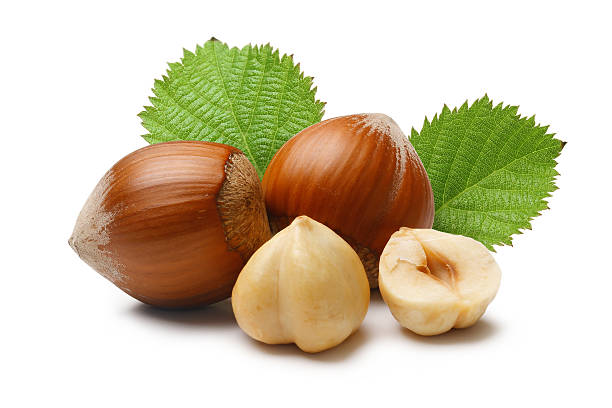Nestled within the protective embrace of the hazel tree, hazelnuts stand out as small, versatile wonders, prized not only for their rich, buttery flavor but also for their exceptional nutritional profile. These heart-shaped nuts, also known as filberts, are a source of essential nutrients that contribute to overall well-being. Let’s delve into the nutritional richness that makes hazelnuts a delightful and healthful addition to the world of nuts.
Heart-Healthy Monounsaturated Fats:
Hazelnuts are renowned for their high content of monounsaturated fats, the heart-healthy fats also found in olive oil. These fats, particularly oleic acid, have been associated with cardiovascular benefits, including reducing levels of LDL cholesterol (often referred to as “bad” cholesterol) while increasing HDL cholesterol (“good” cholesterol). The inclusion of monounsaturated fats in hazelnuts supports heart health.

Plant-Powered Protein:
Hazelnuts are a notable source of plant-based protein, making them a valuable component of vegetarian, vegan, or plant-centric diets. Protein is essential for various physiological functions, including muscle repair, immune support, and the synthesis of enzymes and hormones. Hazelnuts’ protein content adds to their appeal as a nutrient-dense snack or ingredient.
Dietary Fiber for Digestive Wellness:
Hazelnuts are rich in dietary fiber, providing both soluble and insoluble fibers. This fiber content plays a pivotal role in supporting digestive health by promoting regular bowel movements, preventing constipation, and fostering a healthy gut microbiome. Hazelnuts’ fiber richness contributes to satiety, making them a satisfying and digestive-friendly snack.

Abundance of Essential Minerals (Copper, Manganese, and more):
The mineral ensemble in hazelnuts adds to their nutritional value. Hazelnuts provide significant amounts of copper, a mineral crucial for iron metabolism and overall connective tissue health. Additionally, they offer manganese, essential for bone formation and antioxidant defense. Hazelnuts’ mineral content supports diverse physiological processes, including cardiovascular, skeletal, and immune well-being.
Vitamins for Nutrient Diversity (Vitamin E, B Vitamins):
Hazelnuts contribute to the vitamin spectrum, featuring vitamin E, a potent antioxidant that helps protect cells from oxidative damage. They also contain various B vitamins, including thiamine (B1), riboflavin (B2), niacin (B3), pantothenic acid (B5), vitamin B6, and folate. These B vitamins play pivotal roles in energy metabolism, nervous system function, and the synthesis of neurotransmitters.

Antioxidant Protection:
Hazelnuts house antioxidants, including phenolic compounds and vitamin E. These antioxidants play a crucial role in neutralizing free radicals, potentially reducing oxidative stress and inflammation. The antioxidant-rich nature of hazelnuts contributes to cellular health and overall well-being.
Culinary Versatility:
Hazelnuts’ culinary versatility extends from being enjoyed as a wholesome snack to being incorporated into various culinary creations. They can be roasted to enhance their flavor, ground into nut butter, or used as a flavorful ingredient in both sweet and savory dishes. Hazelnuts’ distinct taste adds depth and richness to a wide array of culinary delights.

In conclusion, hazelnuts, with their heart-healthy fats, protein content, and nutrient diversity, stand as a nutritional delight in the world of nuts. As we savor their buttery crunch and appreciate their culinary adaptability, we partake in a journey that celebrates not only the exquisite flavor but also the healthful benefits of hazelnuts. From supporting heart health to providing essential nutrients, hazelnuts remain a symbol of both indulgence and nutrition in the diverse and delicious landscape of nuts.




